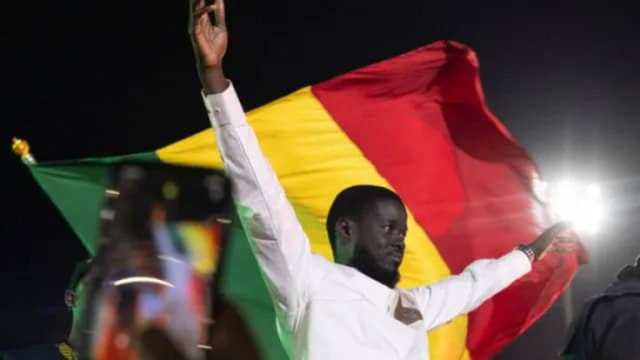THE just-elected president of Senegal, Bassirou Diomaye Faye, has something in common with the former African leaders, Nelson Mandela of South Africa, and Chief Olusegun Obasanjo of Nigeria.
The trios, like the Biblical Joseph, rose from prison to the presidential spotlight.
Here are the facts:
▪︎Nelson Mandela
During his early years as a lawyer and activist, Mandela spoke with a sharp, revolutionary fervour against the brutal oppression of apartheid. Later, stuck in solitary confinement for nearly three decades, his letters pondered the pursuit of justice, reflecting the slow drip of time and the anticipated omissions of a censor.
And then when he became the human rights champion who toppled apartheid, his speeches were aflame with hope, rising beyond South Africa to dream of an end to poverty and injustice everywhere.
Though he was imprisoned yet, he rose as a great and aflamed leader. From 1964 to 1982 Mandela was incarcerated at Robben Island Prison, off Cape Town. He was subsequently kept at the maximum-security Pollsmoor Prison until 1988 and on February 11, 1990, the South African government under President de Klerk released Mandela from prison.
Shortly after his release, Mandela was chosen deputy president of the ANC; he became president of the party in July 1991.
▪︎Olusegun Obasanjo
Former president Olusegun Obasanjo was arrested by the Sani Abacha administration in a seized-power military coup. Obasanjo was openly critical of Abacha's administration and in 1995 was arrested and convicted of being part of a planned coup, despite protesting his innocence.
He was released following Abacha's death in 1998.
Obasanjo entered electoral politics, became the PDP candidate for the 1999 presidential election which he won comfortably and became the first African military leader to turn over political power voluntarily to a democratically elected government.
▪︎Bassirou Faye
Just a few months ago, the man set to be Senegal's next president, Bassirou Diomaye Faye, was sitting in a prison cell, a relatively unknown figure outside his opposition party Pastef. Everything changed for him when the party's firebrand leader, Ousmane Sonko, who was also detained, was charged with insurrection in July and barred from running in elections to succeed President Macky Sall.
That cleared the way for Faye to emerge from the shadow of his former boss and eventually from prison, take over the race and on Monday - the day of his 44th birthday - emerge as the victor after his opponent conceded defeat.
BBC reported that Faye, set to be declared the next president after his main rival called him to concede defeat, thanked President Macky Sall and other candidates for respecting Senegal's democratic tradition by recognising his victory well before the official results. "In electing me, the Senegalese people have decided on a break with a past," Faye told journalists in his first public appearance since the election.
"I promise to govern with humility and transparency," he said.
Provisional results showed Faye with about 53.7% and Amadou Ba - from the current ruling coalition - with 36.2% based on tallies from 90% of polling stations in the first-round vote, the electoral commission said. In the report; Ba and Sall both congratulated Faye, who turned 44 on Monday. They hailed the outcome as a win for Senegal, whose reputation as one of West Africa's most stable democracies took a hit when Sall postponed the vote.
"The Senegalese people have reinforced the good health of our democracy. I wish him (Faye) success at the head of our country," Ba said. A peaceful transition of power in Senegal would mark a boost for democracy in West Africa, where there have been eight military coups since 2020.
Many hope the vote will bring stability and an economic boost after three years of unprecedented political turbulence and several waves of deadly anti-government protests.
"I am happy to see there is a wind of change," said an opposition supporter named Tall, who joined revellers during the night as street celebrations broke out for Faye's victory.




















